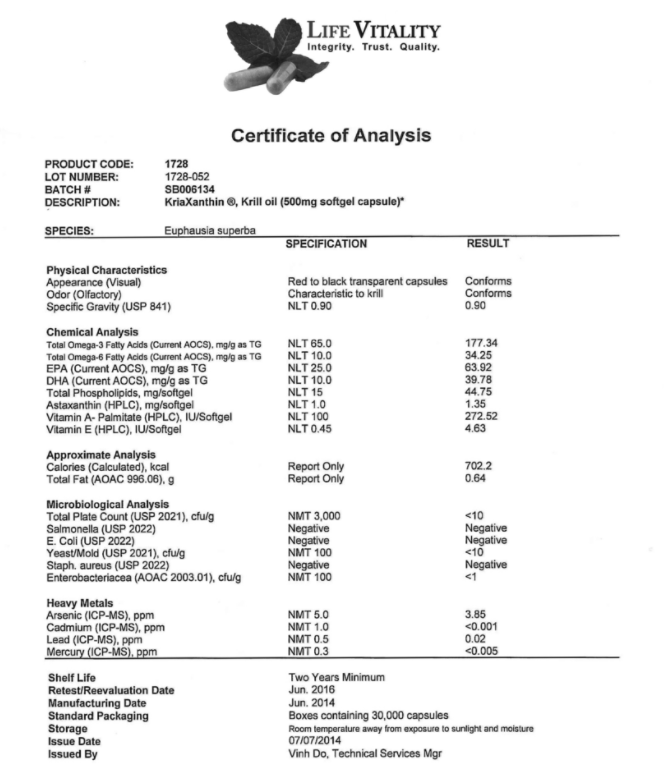Skip Lot Testing: A Loophole for Poor Quality Nutritional Supplements
Do you take supplements to help control a health problem such as PCOS? Or for pregnancy or your general health? Do family members also take vitamins and herbs?
Free PCOS Newsletter
If so, you probably assume that a supplement product is good quality, especially if the label looks good or you have the impression the brand is reliable.
In other words, we take a product at face value. But what is really going on behind the scenes?
Quality Assurance Is Spotty
Since 2009, the Food and Drug Administration has mandated that a nutritional supplement manufacturer test their raw materials for authenticity, potency, microbiology contamination and stability. Sounds good, doesn't it?
However, these regulations allow manufacturers to perform "skip lot testing", which means only a fraction of the raw materials will be tested, since manufacturers are allowed to test at whatever frequency they set forth in their operating procedures.
Manufacturers may justify this dubious tactic by relying on certificates of analysis for their raw materials and by qualifying vendors based on past performance.
Skip lot testing is a cost saving measure -- after all, testing every single batch of raw material and finished product is both labor and time intensive, can prolong manufacturing time, and generates a tremendous amount of paperwork. Manufacturers increase their profits by doing less quality testing.
But is skip lot testing adequate? Are the potential savings worth the risks?
Our main supplier, Vital Nutrients, always quarantines and tests every batch of raw material received, using independent third party labs.
By refusing to do skip lot testing, this company has discovered instances of incorrect identity and potency -- and even microbial contamination.
As a result, they are able to reject unacceptable raw materials prior to manufacture, eliminating any risk of harm to the consumer, as well as the financial risks of performing recalls for product that is out of specification. The most common reasons for such recalls are "undeclared allergens, mislabeling, the presence of contaminants, questionable stability, and incorrect potency".
As an example, it's not uncommon for a raw material supplier to supply the wrong plant material. Through identity testing at the genus and species level, using thin layer chromatography by a specialized lab, Vital Nutrients is able to correctly identify and reject false materials.
Here's another example. They received a batch of berberine extract from a raw materials supplier. Although it was labeled as "100% berberine extract", lab testing revealed it was only 85%, and thus the raw material was rejected. And, you may wonder what the other 15% of the raw material consisted of. Some other plant material? Some kind of filler? Contaminants? No one knows. That's why testing is so important.
Certificate of Analysis Not Always Correct

Most quality-oriented vitamin manufacturers depend on "certificates of analysis" from the raw materials supplier -- if the supplier certifies the raw material is OK, the vitamin manufacturer just accepts it and uses it. But how does anyone know if the certificate is correct?
Any company that actually tests every batch of incoming raw material knows that certificates of analysis are often inaccurate, whether through fraudulence or honest error. Although it may be less likely or common to receive misidentified, sub-potent, super-potent or contaminated material from a familiar wholesaler with an excellent reputation, it can and does happen.
So the best approach is for the supplements manufacturer to test every single batch of incoming raw materials, and to also test the finished supplement product they manufacture -- every time, no exceptions.
Be a Savvy Buyer
When you look at a vitamin bottle, you won't see anything on the label about quality verified by independent lab analysis. So it's buyer beware.
The cheapest product is certainly not always the best. A poor quality product may either be ineffective in helping you, or could even harm your health. I've seen reports that as many as one-third of supplements do not have exactly what is stated on the label, have fillers or contaminants, or pathogenic organisms. The actual number is unknown because no one is checking the quality of all supplement products.
Related Articles
Get Answers to your Questions about
- Fertility
- Weight Control
- Hair Loss
- Stress
- Unwanted Hair
- Acne...and more!
FREE PCOS Report
and Newsletter

Your email is safe with us. We respect your privacy, and you may unsubscribe at any time.
Recent Articles
-
PCOS Long Journey to The Happy End
Apr 30, 18 07:24 PM
Hi Girls, Maybe my story will have one day a good end but I am not there yet. Until I was 31 years old I lived my dream, having lovely husband, good -
PCOS and Miscarriage
Apr 17, 18 04:03 PM
Proper diet and natural supplements can help the body maintain a pregnancy through successful delivery.
-
How to Deal with PCOS and Stress
Apr 04, 18 04:19 PM
Your body has a natural capacity to heal itself if you provide it with the necessary tools.





